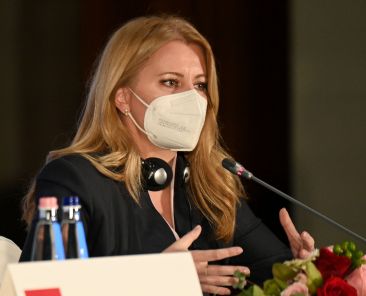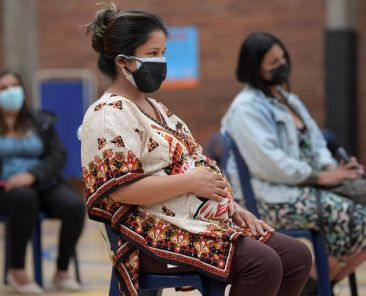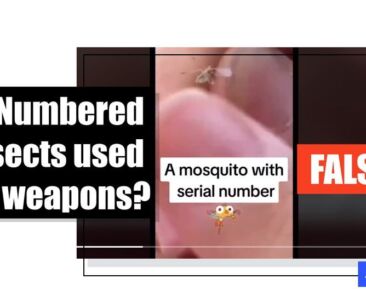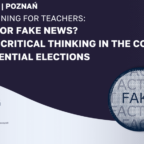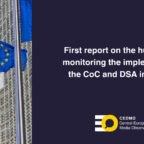About CEDMO
The Central European Digital Media Observatory (CEDMO), as an independent non-partisan multidisciplinary hub, aims to identify, research and prioritise the most critical sources and causes of information disorders in Central Europe (mainly the Czech Republic, Slovakia and Poland). This international consortium was created to propose a set of short and longer-term actions, as well as recommendations to help civil society, public institutions and the private sector respond to the declining trust in key institutions and help society to resist the effect of increasing exposure to mis- and disinformation.
By interacting and coordinating with European Digital Media Observatory (EDMO) and other regional EDMO hubs in EU, CEDMO will contribute to curbing threats posed by information disorders, including disenchantment with the democratic processes, and discord in civil society in Europe, and to building community and nation-wide resilience while protecting information ecosystems.
About CEDMO
The Central European Digital Media Observatory (CEDMO), as an independent non-partisan multidisciplinary hub, aims to identify, research and prioritise the most critical sources and causes of information disorders in Central Europe (mainly the Czech Republic, Slovakia and Poland). This international consortium was created to propose a set of short and longer-term actions, as well as recommendations to help civil society, public institutions and the private sector respond to the declining trust in key institutions and help society to resist the effect of increasing exposure to mis- and disinformation.
Our Partners
About CEDMO
The Central European Digital Media Observatory (CEDMO), as an independent non-partisan multidisciplinary hub, aims to identify, research and prioritise the most critical sources and causes of information disorders in Central Europe (mainly the Czech Republic, Slovakia and Poland). This international consortium was created to propose a set of short and longer-term actions, as well as recommendations to help civil society, public institutions and the private sector respond to the declining trust in key institutions and help society to resist the effect of increasing exposure to mis- and disinformation.
Our Partners
“You at the airport,” says text over a picture of a transportation security agent watching a woman pass through a full-body scanner.
“AWWW… THANK YOU!!!” says a February 4, 2024 post on X, formerly Twitter, from an account called “il Donaldo Trumpo.”
“Stop buying all aquatic and processed products from Europe,” read Chinese text overlaid on a TikTok video uploaded on December 12, 2023.
“Boycott Israeli products! Easy way to identify Israeli products. If there are 729 numbers at the beginning of Barcode! It means Israeli product (sic),” reads a Facebook post from Nigeria shared alongside an image of a barcode.
“Turkiye is now sending support to (Palestinians),” says text over the October 30, 2023 TikTok video, showing an icon of a Palestinian flag.
At around 8:00 pm (1700 GMT) on Tuesday, the health ministry in Gaza reported an Israeli air strike had hit the Christian-run hospital in central Gaza City.
Thousands of Palestinians fled to southern Gaza for refuge on October 13 after Israel warned them to evacuate before an expected ground offensive against Hamas in response to the deadliest attack in Israel’s history.
“Remember, ‘The vaccine is safe for pregnant women’- let me introduce the paperwork dumped by Pfizer, 50k pages. Now we know why they wanted to keep this hidden for 50+years,” says a May 4, 2022 tweet. It includes an image of vaccine guidance, with red underline to highlight: “COVID-19 mRNA Vaccine BNT126b2 is not recommended during pregnancy.”
“Why would mosquitoes have serial numbers unless they’re used as a bio weapon. We are under full attack,” says a post shared to Gettr, a conservative social media platform, on September 22, 2023.
“OOPS: Billboard in New York accidentally greets Zelenskyy with ‘Glory to Urine’ instead of ‘Glory to Ukraine,'” said a September 21, 2023 post sharing the 6-second clip on X, the site formerly known as Twitter.
“OK, we need only one statistic to prove the Earth is not too hot for humans,” Moore says in an August 1, 2023 post on Twitter, which is being rebranded as “X.”



















